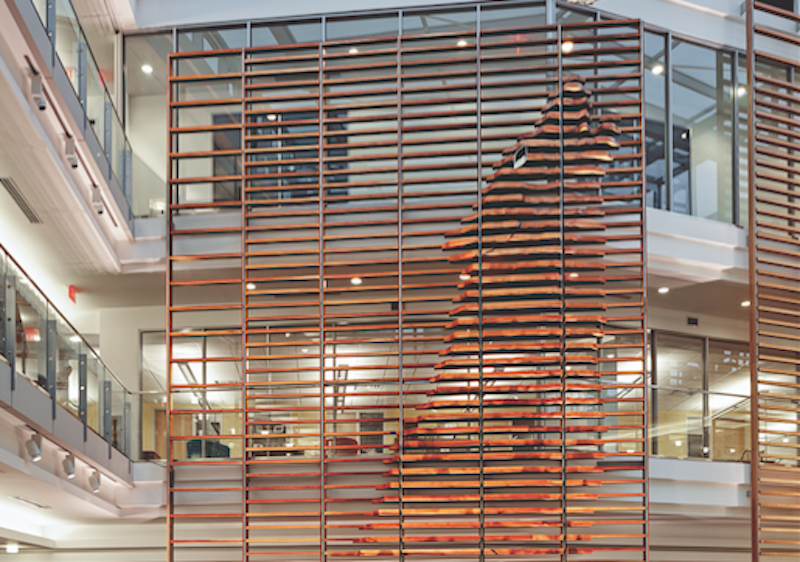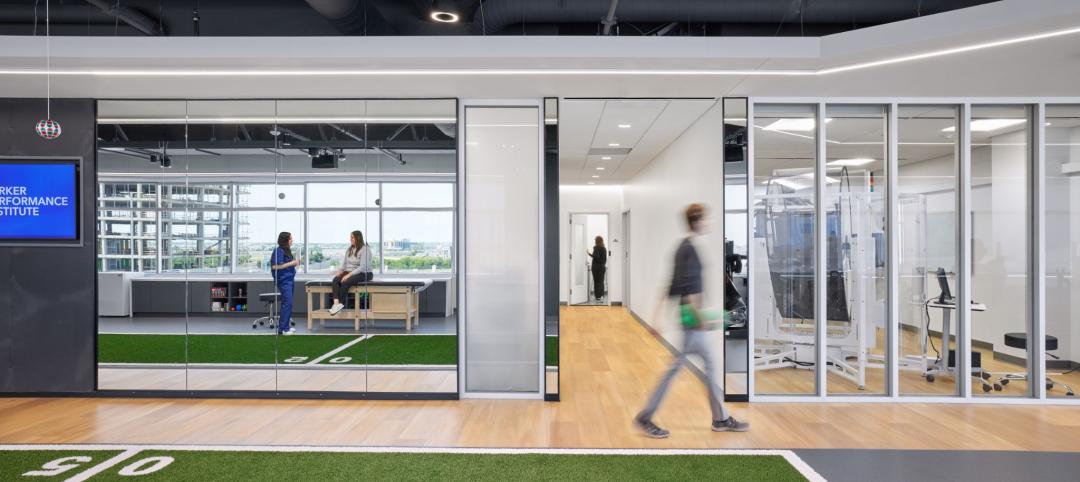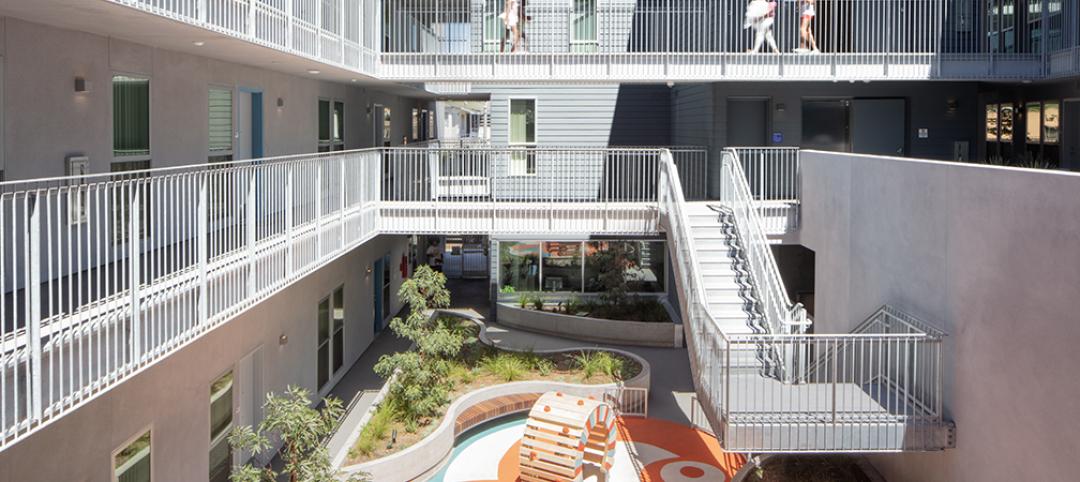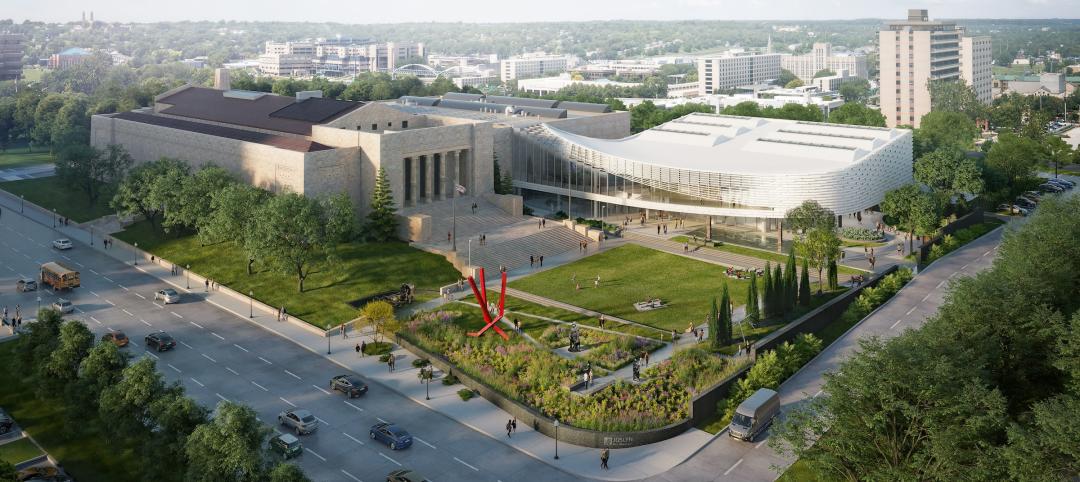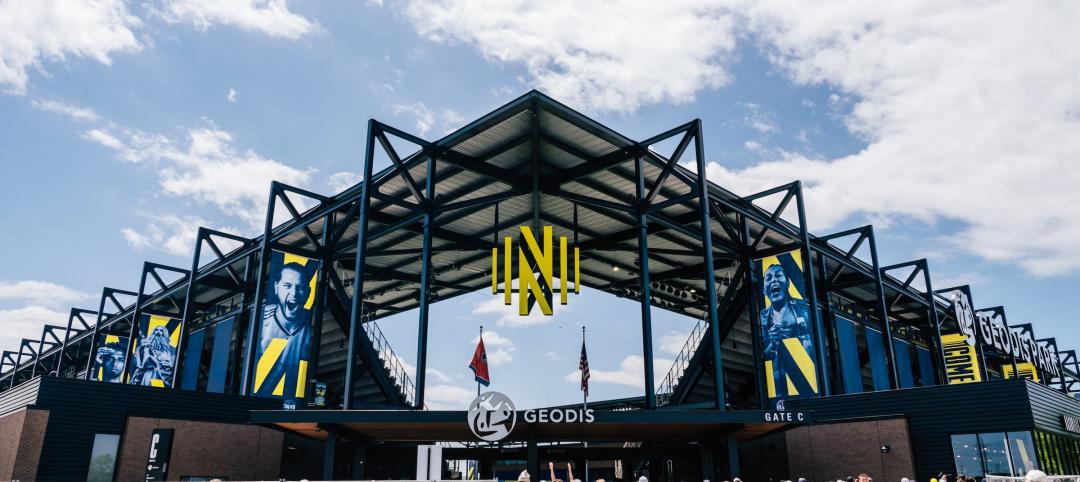Funding for the nation’s 1,700 or so public two- and four-year colleges remains well below pre-recession levels. Average state spending per student has fallen 17%—about $1,525—since the recession, according to the Center on Budget and Policy Priorities.
TOP 100 UNIVERSITY ARCHITECTURE FIRMS
Rank, Firm, 2015 Revenue
1. Gensler $79,810,000
2. Perkins+Will $59,960,000
3. CannonDesign $56,800,000
4. EYP $46,539,910
5. Stantec $37,993,785
6. Robert A.M. Stern Architects $24,802,000
7. Clark Nexsen $24,561,000
8. S/L/A/M Collaborative, The $21,833,000
9. CO Architects $21,475,500
10. HDR $21,406,400
TOP 100 UNIVERSITY CONSTRUCTION FIRMS
Rank, Firm, 2015 Revenue
1. Turner Construction Co. $1,124,325,847
2. Whiting-Turner Contracting Co., The $772,402,993
3. Skanska USA $535,834,200
4. Messer Construction Co. $521,400,000
5. Barton Malow Co. $470,447,175
6. Gilbane Building Co. $429,741,000
7. McCarthy Holdings $357,875,128
8. Consigli Building Group $343,722,913
9. Clark Group $335,471,145
10. Hensel Phelps $305,040,000
TOP 70 UNIVERSITY ENGINEERING FIRMS
Rank, Firm, 2015 Revenue
1. AECOM $65,000,000
2. WSP | Parsons Brinckerhoff $37,988,000
3. Jacobs $31,600,000
4. Affiliated Engineers $19,264,000
5. KJWW / TTG $16,943,913
6. Arup $15,856,593
7. Vanderweil Engineers $15,351,800
8. Simpson Gumpertz & Heger $13,586,000
9. Thornton Tomasetti $13,363,234
10. Dewberry $12,904,401
Money woes will continue to affect capital budgets and operations and maintenance allocations, says Mike Broge, PE, LEED AP, Higher Education Market Leader with Affiliated Engineers. That will only worsen an already significant backlog of deferred maintenance at many institutions, he says.
Budget constraints are compelling some public institutions to pursue alternative methods of financing their major building projects.
The University of Kansas leveraged a public-private partnership to initiate a $350 million redevelopment of its central district. The P3 deal includes a 265,000-sf integrated science building, a 40,000-sf student union, a central utility plant, student housing, and infrastructure upgrades. Most of the projects are scheduled for completion in mid-2018.
The University of Kentucky is among the schools that are enlisting developers to oversee their large on-campus projects. Memphis-based EdR is developing 14 new residence halls totaling 2.6 million sf on the Lexington campus. Two buildings are scheduled to open this fall; the others will be completed next summer.
“This approach keeps costs off universities’ books while still allowing them to stay ahead of the competitive curve with their facilities and on-campus amenities,” says Tim Steigerwald, SVP with Messer Construction.
Lack of capital has also contributed to a surge in master planning projects. Steigerwald says the University of Wisconsin is developing master plans for at least three large colleges, plus an overall campus infrastructure master plan. The goal: to achieve more efficient use of existing facilities through lower-cost renovations and spatial reconfigurations, thus avoiding costly additions or new facilities.
THE RISE OF INNOVATION SPACES ON Campus
To better equip students to excel in their future work environments, schools are developing a range of innovation spaces that promote hands-on, cross-disciplinary learning, foster unique business and industry partnerships, and encourage entrepreneurship.
Jeff Stebar, AIA, LEED AP, Higher Education Practice Leader at Perkins+Will, says that a phenomenon he calls “serendipitous cross-pollination” can occur across multiple disciplines working together in the same place. Such a structure models the 21st-century workplace and adds richness to the educational experience. “These spaces are typically owned by everyone, not by any specific college or dean,” he says.
That’s the idea behind the Collaborative Learning and Innovation Complex at Tufts University, Medford, Mass. Designer Stantec is transforming a 100-year-old warehouse into a new 95,000-sf facility that will house seven departments, ranging from physics and robotics to human development and community health. The teaching/research building incorporates open research labs shared by multiple areas of study, along with public social zones to foster interdepartmental collaboration. The project is part of a new Science and Technology Corridor that will also include a new 80,000-sf Science and Engineering Complex, designed by Payette. It is scheduled to open in 2017.
At the University of Utah, Lassonde Studios, designed by CannonDesign and Yazdani Studio, fuses a 400-bed residence hall with 20,000 sf of “garage space” where students can build a prototype, attend an event, or launch a business. Opening this fall, the facility has been designed to advance the university’s nationally ranked entrepreneurship program.
College libraries are also adapting to include technology-driven laboratories, informal group study workspaces, and cafés. A new 220,000-sf library under construction on Temple University’s main campus in Philadelphia will replace an existing 1960s-era facility with a dynamic, technology-rich environment. Designed by Snøhetta and Stantec, the $170 million project will accommodate Temple’s 2.5-million volume collection, student study space, research space, and staff areas.
A renewed interest in health careers is fueling demand for new health profession classroom buildings, clinical labs, and health-related research facilities.
“This trend is due in large part to a growing number of students who recognize the career opportunities afforded by a healthcare industry in the midst of a significant workforce shortage,” says Steve Rhoades, PE, LEED AP, Managing Principal, KJWW.
A 70,000-sf addition to the Columbia University nursing school is currently under construction in Manhattan. Designed by CO Architects and FXFOWLE, the seven-story structure will supplement the school’s existing classroom facilities with healthcare simulation technology, research facilities, and collaboration space. Expected to open in 2017, the building will include mock operating rooms, ICUs, ERs, and exam rooms where students can hone their nursing skills.
Private institutions are also jumping on the healthcare education bandwagon. The University of Pikeville, a private liberal arts college of 2,300 students in the coal country of Kentucky, is building a new 100,000-sf health professions education building that will open next year. Designed by Ayers Saint Gross, the facility will house the Bluegrass State’s first College of Optometry, as well as a nursing facility. The project is part of a strategic plan to upgrade the education needs of the Central Appalachia region and meet the growing demand for optometrists.
RETURN TO THE GIANTS 300 LANDING PAGE
Related Stories
Codes and Standards | Mar 15, 2024
Technical brief addresses the impact of construction-generated moisture on commercial roofing systems
A new technical brief from SPRI, the trade association representing the manufacturers of single-ply roofing systems and related component materials, addresses construction-generated moisture and its impact on commercial roofing systems.
Sports and Recreational Facilities | Mar 14, 2024
First-of-its-kind sports and rehabilitation clinic combines training gym and healing spa
Parker Performance Institute in Frisco, Texas, is billed as a first-of-its-kind sports and rehabilitation clinic where students, specialized clinicians, and chiropractic professionals apply neuroscience to physical rehabilitation.
Market Data | Mar 14, 2024
Download BD+C's March 2024 Market Intelligence Report
U.S. construction spending on buildings-related work rose 1.4% in January, but project teams continue to face headwinds related to inflation, interest rates, and supply chain issues, according to Building Design+Construction's March 2024 Market Intelligence Report (free PDF download).
Apartments | Mar 13, 2024
A landscaped canyon runs through this luxury apartment development in Denver
Set to open in April, One River North is a 16-story, 187-unit luxury apartment building with private, open-air terraces located in Denver’s RiNo arts district. Biophilic design plays a central role throughout the building, allowing residents to connect with nature and providing a distinctive living experience.
Sustainability | Mar 13, 2024
Trends to watch shaping the future of ESG
Gensler’s Climate Action & Sustainability Services Leaders Anthony Brower, Juliette Morgan, and Kirsten Ritchie discuss trends shaping the future of environmental, social, and governance (ESG).
Affordable Housing | Mar 12, 2024
An all-electric affordable housing project in Southern California offers 48 apartments plus community spaces
In Santa Monica, Calif., Brunson Terrace is an all-electric, 100% affordable housing project that’s over eight times more energy efficient than similar buildings, according to architect Brooks + Scarpa. Located across the street from Santa Monica College, the net zero building has been certified LEED Platinum.
Museums | Mar 11, 2024
Nebraska’s Joslyn Art Museum to reopen this summer with new Snøhetta-designed pavilion
In Omaha, Neb., the Joslyn Art Museum, which displays art from ancient times to the present, has announced it will reopen on September 10, following the completion of its new 42,000-sf Rhonda & Howard Hawks Pavilion. Designed in collaboration with Snøhetta and Alley Poyner Macchietto Architecture, the Hawks Pavilion is part of a museum overhaul that will expand the gallery space by more than 40%.
Affordable Housing | Mar 11, 2024
Los Angeles’s streamlined approval policies leading to boom in affordable housing plans
Since December 2022, Los Angeles’s planning department has received plans for more than 13,770 affordable units. The number of units put in the approval pipeline in roughly one year is just below the total number of affordable units approved in Los Angeles in 2020, 2021, and 2022 combined.
BIM and Information Technology | Mar 11, 2024
BIM at LOD400: Why Level of Development 400 matters for design and virtual construction
As construction projects grow more complex, producing a building information model at Level of Development 400 (LOD400) can accelerate schedules, increase savings, and reduce risk, writes Stephen E. Blumenbaum, PE, SE, Walter P Moore's Director of Construction Engineering.
AEC Tech | Mar 9, 2024
9 steps for implementing digital transformation in your AEC business
Regardless of a businesses size and type, digital solutions like workflow automation software, AI-based analytics, and integrations can significantly enhance efficiency, productivity, and competitiveness.


